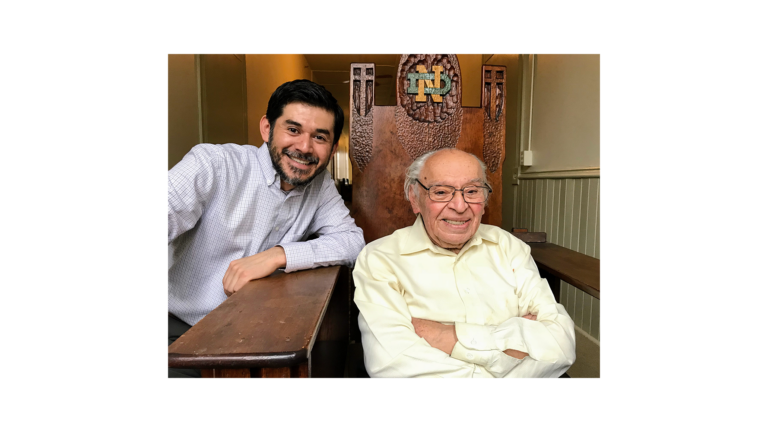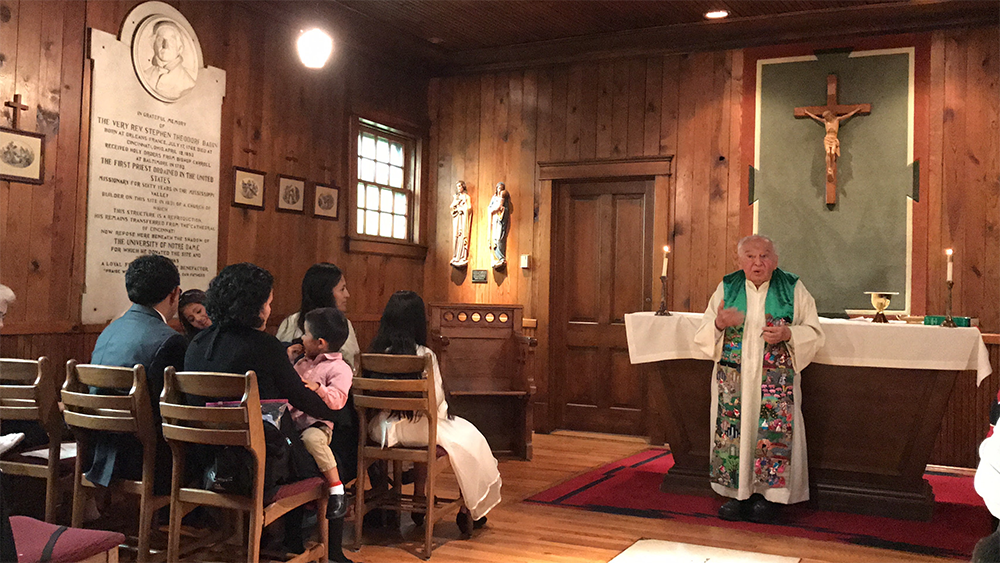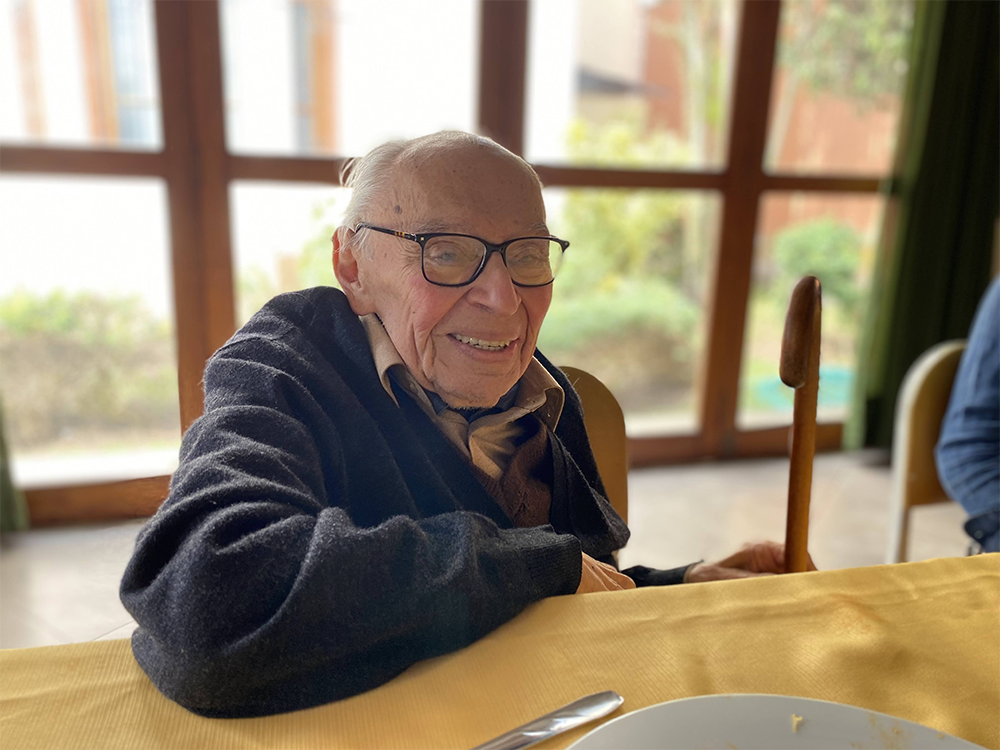
Theological insights emerging from Latin America have left an indelible mark upon both Christianity and public policy. On both fronts, Gustavo Gutiérrez’ work has been seminal. Photo courtesy of Leo Guardado, Ph.D.
Memory of an Encounter
He said to them, “Come and see.” They came and saw where he was staying, and they remained with him that day. It was about four o’clock in the afternoon.
— John 1:39
I remember the day vividly in the fall of 2006 when Gustavo Gutiérrez was in front of the room at the University of Notre Dame lecturing about Bartolome de Las Casas, the 16th-century Spanish Dominican and advocate for the rights of the indigenous people in the “new world.” Gustavo stood up to write on the board while he continued speaking with a voice that came from deep within his well of knowledge regarding the theological debates that had taken place in Europe and in the “new world” in the 1500s. For almost three months I had been listening to both Gustavo and to Bartolome, trying to keep up with their theological reasoning, which at certain moments would become a single voice across time. I had begun to realize that my own story as a Salvadoran was embedded into a much longer colonial history that spans 500 years in the Americas. But also, for the first time, that day I felt that theology held a grammar and an expansive vocabulary for speaking of my people’s living faith in the midst of violence and death. In the ordinariness of that afternoon, God-talk (theology) became alive, a living discourse of a God of life. As I learned of the ways that theology had been forced into servitude of condemnations, enslavements, and death, especially of the smallest and most forgotten as Las Casas would say, I began to hear the call to do theology that in freedom serves the ecclesial task of liberation, sanctification and the protection of life.

My encounter with Gustavo was a theological conversion, an awakening to the indelible relationship between the task of theology and the deep wells of spirituality that must nourish theological insights. Gustavo says that “spirituality is a manner of life that gives a profound unity to our prayer, thought, and action,”[1] and it was this profound unity that I had not previously experienced as the beating heart of theology. With one voice, across the centuries, Gustavo and Bartolome revealed that I could begin to do theology in light of my historical commitments, out of my community’s experience of war and forced migration, and in relation to my generation’s struggles with the mystery of God. To be liberated to do theology for the sake of the integral liberation of God’s people is a responsibility and a blessing. It is an invitation to the biblical “come and see,” a way of living that is attuned to what God has already done, is doing, and asks us to do in the ongoing re-creation of the world. This gift of doing theology, which I have received in faith, is what I attempt to pass on to my own students.
At Fordham University, I teach a doctoral seminar titled “Doing Theology with Gustavo Gutiérrez” where we read all of his works in chronological order to discern what changed through the years, what concepts were developed further, and to trace new insights that came into being in light of the ecclesial and political context that began to persecute this new way of doing theology from the perspective of the poor and insignificant. Inevitably, we come to the harrowing insight that a theology that communicates the God of life is a dangerous theology, as is evident when we remember why archbishop Oscar Romero was killed in March 1980, or the US churchwomen in December 1980, or the Jesuit community and their housekeeper and daughter at the Universidad Centroamericana (UCA) in San Salvador in November 1989. The list could go on, not only in El Salvador but across Latin America, but the point is not simply that people have been killed, but that they have been killed for their living faith and enfleshed proclamation of a God who lives and dies with the poor and persecuted. This is dangerous God-talk, but it is also the means for a genuine encounter with the mystery of God in the modern world.

Gustavo Gutiérrez’ writings are part of the rich tradition of thinking Christian faith in modernity, in relation to politics, to salvation, to what it means to be church, to rethinking spirituality and mysticism, and to living into the wounds and laments of history from where prophetic words may be uttered, the same living words that also led to Jesus’ death. In passing on Gutiérrez’ intellectual and spiritual legacy, my hope is that students have a unifying encounter with the God of life to which his texts point, and with the poor and insignificant who are at the heart of his theology. This, I believe, is a credible faith worth passing on to new generations.
[1]. Gutierrez, We Drink from our Own Wells (Orbis, 1984), 88; Beber en su Propio Pozo (CEP, 1983), 134.
Editor’s note: Leo Guardado, Ph.D., is an assistant professor in the Department of Theology at Fordham University and the inaugural DePaul Fellow at the Institute for Advanced Catholic Studies at USC. On Nov. 13, Dr. Guardado will discuss Gustavo Gutiérrez’ work and its impact on Catholicism during an event on the USC campus.